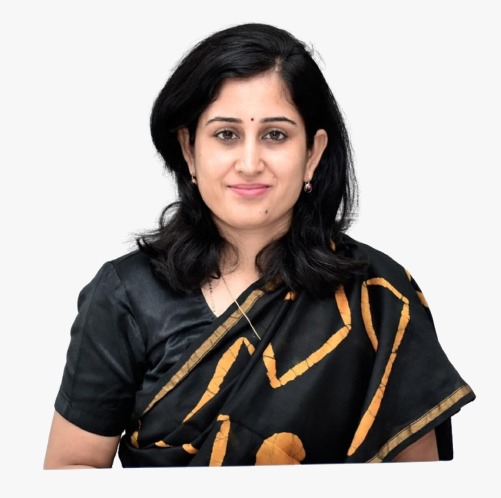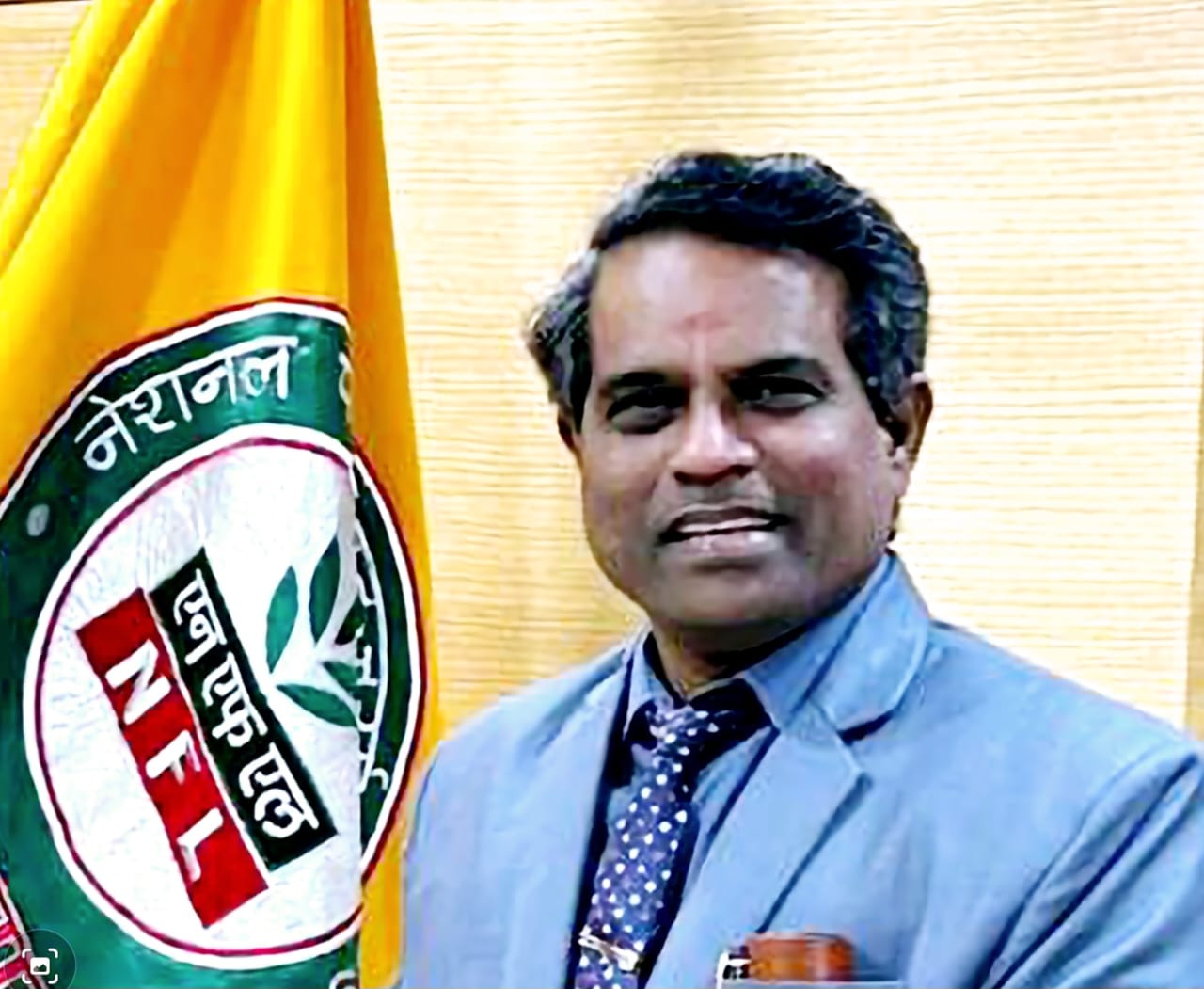Good governance is at the core of whatever a bureaucrat does: Chhotaudepur DM IAS Stuti Charan
Author: Ananya Ravi

Stuti Charan, a dynamic IAS officer, has always aspired to contribute towards the betterment of society. It was one of the reasons she opted for Civil Services. Her dream came true in 2012 when she secured third rank in Civil Services Examinations. Hailing from a small village called Khari Kalla in Jodhpur, Rajasthan, she is currently serving as District Magistrate, Chhotaudepur, Gujarat, where she is doing an amazing job by ensuring all round development of the district and has also brought some significant digital reforms.
Participating in an exclusive Bureaucrats India Dialogue, she shared her insights and vision as a bureaucrat with Navneet Anand, Editor-in-Chief, Bureaucrats India, and Sweta Bharti, Assistant Editor, Bureaucrats India. Read The Entire Interview Here:
Uplifting the weakest among the weak is central to the idea of good governance! What is your take?
Good governance is at the core of whatever a bureaucrat does. Our main objective is to serve the distressed and deprived. Ensuring participation, feedback and team work are key to the holistic development of all in general and the deprived sections in particular.
Similarly, a focussed approach has an important role to play. In my previous postings, health was my major centre of focus. As DDO, Aravalli, I started the initiative called ‘Nahi Pari’ where we celebrated the birth of a girl child. We did ‘Kumkum - Tilak’ to the girl child, mother and gave them some hygiene gifts. This was started at all PHCs and Gram Panchayats. We also ensured that pregnant mothers and their families are told that having a girl child is a blessing. Newborn girl child was issued her Aadhaar card and birth certificate the same day.
Your district has a forest area of 75,704 hectares and has deposits of dolomite, fluorite, granite and sand all of which are mined. Are Tribals the principal beneficiary of these natural resources or fringe beneficiaries?
Chhotaudepur is a Tribal belt with 70 per cent forest coverage. Various ‘Van Mandalis’ have been created where forest produce is sold and custard apple being one of the favourites. The people are earning a good share of money through these Van Mandalis. It not only is improving the economic status of these people but is also instilling a sense of belongingness among them. They get good benefits during harvest season. Our custard apples are very famous. Forests have played a pivotal role in the economic upliftment of Tribals.
The district is also home to a large dairy industry. A few initiatives taken for them!
In Chhotaudepur Agriculture and Animal Husbandry Departments play vital roles in the local economy. Since the district was a part of Vadodara district initially, many are involved in the dairy industry, which has proved to be a lucrative industry. The District Administration gives them training in animal husbandry management. We have a training plant as well to empower ‘Pashu Palaks.’ We hope they will reap its benefits soon.
What was your experience during Covid 19? It was the worst crisis of our lifetime so far. How did your training as an administrator come in handy?
During the first and second waves of the pandemic, I was posted as Regional Commissioner of Municipalities in Rajkot Zone. I was managing the Covid-19 beds. Everyday our priorities changed. Our main focus was to ensure anyone who needed a bed got it on time. I am happy to share that we could ensure all the patients who called the control room for any needs were catered to on time.
Health has been one of your key priorities in your every posting. As DDO Sabarkantha, you did something for maternal health and pregnancy. Tell us a little bit about that.
As DDO Sabarkantha we came across the fact that many pregnant women died due to cardiac issues. We monitored all the pregnant women throughout their pregnancies. Gynecologists and cardiologists were roped in for this. Any woman in need of further medical assistance was sent to Ahmedabad for treatment. I am happy to note that we could save many lives through this.
Rathwa Tribes are known for producing the Pithora mural paintings by mixing colours with liquor and milk and then using it to depict intricate motifs and scenes on the walls of their village dwellings. Do you have any plans to market it globally?
Pithora paintings are unique to our district and are very beautiful. We are planning to rope in some NGOs and other agencies to market them as well.
Urban amenities have become a major challenge in our country since more and more people are shifting towards local towns. How well prepared are we to deal with this challenge?
The state is equally focused on the development of rural areas as it is on urban areas. Although there does exist a divide, it is being bridged quickly. The amenities that are found in urban areas such as electricity connections, water, roads, health facilities, and good educational institutions are present even in rural areas.
What are the areas of your thrust in the district? How has been people’s response so far?
My focus at the moment is health infrastructure, as we have seen the devastating impacts of the pandemic. She also mentioned that she wants to improve education, electricity supply, internet and electronic connectivity, and various developmental projects. As development projects require land in order to be executed, land clearance also remains a priority.
Please tell us a little bit about your initiative of online grievance redressal.
We have a project called ‘Zila Swagat’ where people come to the District Magistrate office with their grievances. We decided to create a system for online grievance redressal. An e-mail ID is created for each Zila Panchayat where the grievance applications are e-mailed by the head for each person. The applications are then sorted through, and a date and time is given to the person for a zoom call that is held at that centre for the meeting. It is also a paperless program where the solution to the grievance is not given on a paper. It is sent to them as a PDF on WhatsApp, and if they don’t have a smartphone, the solution is sent on the same e-mail which is then the Zila Panchayat’s responsibility to relay the message to the appropriate person. This has saved a lot of time and money for people as it has cut down travel time.
It is reported that marijuana is being cultivated in the district for the lure of easy money. While taking penal action is one route, is there something different the administration has been doing to wean Tribals away from this practice?
In these instances, our police department is very active. I must compliment them for their efforts. They are also doing counselling of locals to stop such cultivation; many social campaigns are being undertaken for the same.
Tell us about your family, inspiration, your selection in Civil Services, and some words for aspiring IAS officers!
I was born in Jodhpur Khari Kalla village. Most of our education was done in Bhilwara. After my schooling, I went for graduation in biotechnology. I did MBA as well. I always had a dream of being in Civil Services, because my grandfather was an IAS officer of 1974 batch. My parents were my biggest support. After taking the exam thrice, I secured 3rd All India Rank in 2012 exams. For those who are preparing for Civil Services examinations, my only advice will be to not to lose hope. Keep trying and you will achieve your dreams!



